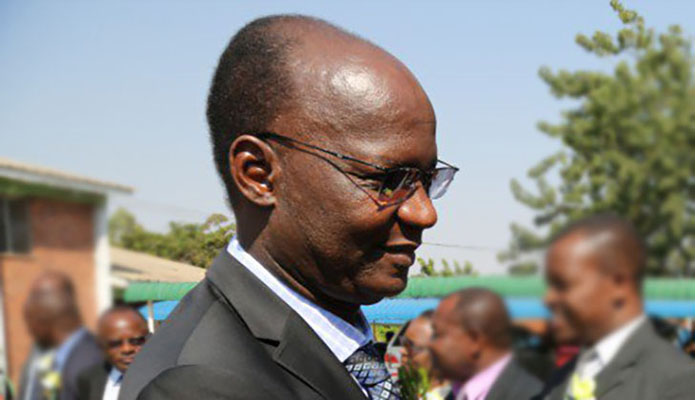Chief Justice Chidyausiku excluded from Moyo arrest hearing
By Daniel Nemukuyu
Chief Justice Godfrey Chidyausiku will not be part of the nine-member bench that is set to determine the constitutionality of the arrest of Higher and Tertiary Education, Science and Technology Development Minister Professor Jonathan Moyo on allegations of defrauding the Zimbabwe Manpower Development Fund (Zimdef) of nearly $500 000.

The Registrar of the Constitutional Court has set down the hearing of the matter for tomorrow (Wednesday) but Chief Justice Chidyausiku and Justice Paddington Garwe will not take part.
At the end of last year, the Chief Justice, in his chambers, temporarily stopped Prof Moyo’s prosecution pending the determination of the main challenge by the full bench of the Constitutional Court. According to this week’ cause list for the apex court, the Chief Justice together with Justice Paddington Garwe will not be part of the nine judges set to hear the matter.
The apex court is expected to determine the lawfulness or otherwise of the arrest of Higher and Tertiary Education Minister Prof Moyo on allegations of swindling the Zimbabwe Manpower Development Fund.
Prof Moyo, his deputy Dr Godfrey Gandawa and Zimdef finance director Mr Nicholas Mapute, stand accused of abusing nearly $500 000 belonging to Zimdef.
They were arrested by the Zimbabwe Anti-Corruption Commission.
Dr Gandawa and Mr Mapute have since been placed on remand at the Harare Magistrates’ Courts.
Before the trio’s court appearance date, the minister instructed his lawyer Mr Terrence Hussein to file an urgent interdict at the Constitutional Court.
Chief Justice Chidyausiku, in his chambers, temporarily stayed the prosecution pending determination of the main constitutional challenge.
The Registrar of the Constitutional Court has set down the hearing of the main challenge for tomorrow morning.
This was after the parties had filed all the relevant papers for the hearing of the matter.
In his main application, Prof Moyo is questioning the constitutionality of his arrest by the Zimbabwe Anti-Corruption Commission (Zacc) and the role played by the police.
He argues that Zacc does not, in terms of the Constitution, have the power to arrest and detain suspects.
Prof Moyo also argues that the Prosecutor-General does not, in terms of the Constitution, have the power to order the police to arrest an individual.
He sought to stop his appearance in court, describing it as an illegality.
The investigating officer, Sergeant Munyaradzi Chacha, he argued, could not be part of Zacc and the police at the same time, while acting Prosecutor General Advocate Ray Goba had no power to order his arrest.
Adv Goba said criminal allegations against Prof Moyo were well-substantiated and urged the Constitutional Court to issue an order compelling him to appear before a magistrate in terms of the law within 24 hours of the issuance of the order to answer to the charges.
Responding to Prof Moyo’s challenge, Adv Goba said his office had perused the docket prepared by the investigators and reached a conclusion that there was an ‘overwhelmingly reasonable suspicion’ that the politician and his accomplices committed fraud, theft, money laundering and criminal abuse of office.
To that end, Adv Goba urged the court to dismiss with costs the constitutional challenge by Prof Moyo and instead direct that he immediately surrenders himself to the investigators and appear before a magistrate to answer to the charges.
Adv Goba and his team of chief law officers also picked from the docket that Prof Moyo authorised various transactions in which Zimdef lost close to $500 000.
The Acting Prosecutor-General denied ever directing the police to arrest Prof Moyo, but instead said he only directed the Police Commissioner-General to follow due process of the law and assist in the finalisation of investigations by Zacc.
He said Prof Moyo did not deserve to be treated differently from other suspects. The Chronicle






